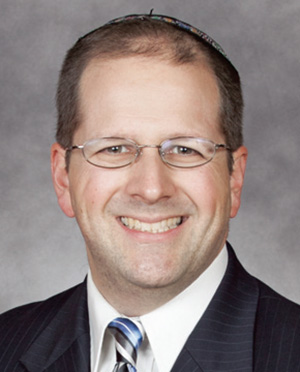
If you would ask students what they perceive to be the most important subject they are taught in school, you are likely to get a range of answers, from Gemara to math to engineering to art. However, if you ask the educators what the most important subject taught in school is, what is the one subject that they hope that every student continues to engage in after graduation, you may well get an answer that is not a traditional “subject” at all.
Tefillah.
While tefillah is rarely “taught” as a subject, schools spend a tremendous amount of time working on how to do it well. Jewish educator messageboards and publications are rife with articles and posts looking for or suggestions of new “tricks” to running a successful tefillah in school, and most educators will agree that while they will not be bothered if a student does not practice calculus or learn a new daf on the morning after graduation or on the first day of vacation, they quietly measure (part of) their own success based on how many of their students have internalized the importance of davening every day.
There are many roads to the castle, and there are at least as many ways that educators have attempted to make tefillah more inspiring, more appealing, or more of a positive experience for their students. No approach works every time or for every student, and thus the continued efforts of teachers (and parents!) is always needed in this regard. I would like to share one effort that we have been developing at Yavneh Academy’s middle school over the past few years.
While our daily minyan (and other, smaller tefillah groups) has always offered a mix of an “authentic” minyan experience combined with some singing and inspirational divrei Torah, many of our students felt that they were lacking a basic understanding of what the tefillot meant. To address that need, we began developing a multi-year course in beur tefillah. Two times per week, every student in sixth, seventh and eighth grades devote a full period to studying the meaning of and ideas behind our daily prayers. The materials for this course, which are culled from a wide range of sources—mostly traditional but some more contemporary as well—aim to impart three aspects of the tefillot to our students. First, they seek to provide some basic explanation of the actual words or main ideas of each tefillah. Second, they introduce some of the broader ideas contained in our tefillot, thus introducing the students to the notion that the siddur is not simply a collection of pesukim and poems, but rather is a book about faith, about belief and about some of the other cardinal ideas in Judaism. Finally, once the students have been exposed to a general sense of what the tefillot are about, some of the basic halachot of tefillah are introduced. Whereas those laws were formerly taught out of context, as a dry list of when to sit, when to stand and when not to speak, they are now presented within the larger framework of what tefillah is all about.
As an educational bonus, our beur tefillah course has provided us with a forum for some pedagogical experimentation as well. In seventh grade, all materials have been placed online, many of them in video form, and students proceed through the material at their own pace. Instead of the usual teacher-designed assessments, students are asked to produce their own projects, presentations and thoughtful responses and reactions to the material, a freedom that has at times produced student-initiated ideas for improving our approach to tefillah in the school.
Producing students who daven well is a challenge for any school. It involves a wide range of skills, knowledge and beliefs, and requires parental role modeling as much as educator guidance. It is the work of years, not days. Our goal with our beur tefillah course is to provide a developmentally appropriate space for middle school students to not only learn about tefillah, but to form a connection with it as well, so that their approach to davening is able to grow and mature with them as they develop into young adults.
By Rabbi Dr. Aaron Ross
Rabbi Dr. Aaron Ross is Yavneh Academy’s middle school assistant principal.









